Transcription
In the Marion Superior Court
Civil Division Room 5
State of Indiana )
) SS: 2011
County of Marion )
)
Bro Khalfani Malik Khaldun )
(Leonard McQuay #874304 ) (Plaintiff's Declaration)
Plaintiff )
Vs. ) Civil Action Cause No.
) ______________________
Stanley Knight et al ) ______________________
Defendants )
)
Declaration in support of Plaintiff's Motion for a Permanent Restraining Order And Permanent Injunction
1) I am plaintiff in this cause, and I make this declaration in support of my civil complaint against the defendants, and my motion for a permanent restraining order and injunction to ensure that I am no longer subjected to indefinite conditions of confinement on department wide administrative segregation at Wabash Valley Correctional Facility special confinement unit (SCU).
2) As set forth in this complaint in this case, this plaintiff has spent 16 or more years in segregation inside the Indiana Department of Corrections. He has been housed at the WVCF, held on this special confinement unit since January 2003. This confinement has deprived plaintiff of contact visitation with his children, family and friends. The visits went from non-contact behind the glass to monitored visits, and unwarranted hardship on those that love me, and who have committed no crime or violated prison rules. I am forced to remain in my cell 23-4 hours a day. My food is delivered to me by staff three times a day. I am escorted on a dog leash whenever I leave my cell.
3) Plaintiff has completed all active programs that have been available inside the SCU per executive directive #09-48 policy for the Actions, Consequences, and Treatment Program (ACT). I entered this program by signing the necessary paperwork on June 23, 2009. This is a one-year program whose goal is to promote positive and responsible behavior, and also to re-integrate the prisoners back into general population. The program has five phases. I received 13 certificates for completing: substance abuse education, stress management, anger management, commitment to change, prison life skills, parenting, cage your rage, rage, recidivism, recovery, prison life skills II, houses of healing, inside/outside dads, and bridging the gap. Once I graduated with honors, I was NOT released to general population. Instead the defendants placed me on department wide administrative segregation, a placement likely to be indefinite.
4) Plaintiff is currently on such confinement per policy 02-01-111: The use and operation of adult offender administrative segregation. This policy is very detailed and describes the operation of this unit. It also clearly defines who is admitted to this unit. But what this policy fails to do is outline a specific date of release. Without having a cut-off point this ultimately leads to many prisoners being held on indefinite segregation. This unit is windowless, with minimum contact, and I must be handcuffed and shackled every time I leave my cell. This form of segregation constitutes an atypical and significant hardship in relation to the ordinary incidents of prison life.
5) Plaintiff's only view of the outside world is through a mesh roof of the recreation. Also, I am escorted to another area where 8 individual cages exist, every other day, which is equivalent to a dog cage for one hour recreation. The deprivation existing on this unit is extreme both in degree and duration. An indeterminate term of segregation in this SCU (Special Confinement Unit) suggest sufficient severity to implicate procedural due process protections. I have suffered a form of segregation that is far worse that the conditions experienced by the typical prisoner.
6) Plaintiff has been held in segregated confinement now for 16 years. He has been out of the general population since December 1994. He was transferred from the "Supermax" control unit in Westville, IN to WVCF and assigned to the special confinement unit, where he has been housed since 2003. I believe that status absent misconduct is not enough under these circumstances. I feel that continues segregation should be based solely on actual behavior, because attempting to use predictive criteria based on subjective information has led historically to unsatisfactory and possibly indefensible results.
7) I (Brother Khalfani Malik Khaldun) Leonard McQuay #874304, do hereby affirm under the penalty for perjury pursuant to I.C. 35-44-2-1 that the foregoing representations are true and correct to the best of my knowledge and belief.
Bro. Khalfani Malik Khadun #874304
Leonard McQuay A-1205
PO Box 1111
Carlisle, IN 47838
In the Marion Superior Court Civil Division Rm 5
State of Indiana )
) SS: 2011
County of Marion
Brother Khalfani Malik Khaldun )
(Leonard McQuay) #874304 )
)
)
Vs ) Memorandum of Law
)
) Civil Action No ___________
Stanley Knight, et al )
Defendants )
Memorandum of law in support of a permanent restraining order and permanent injunction
This is a civil rights action brought under 42 USC 1983, to expose the practices of the defendants in this cause from assigning plaintiff to "indefinite segregation." Plaintiff has been subject to atypical and significant hardships, being isolated in segregation for nearly 17 years.
Plaintiff seeks a permanent restraining order and permanent injunction to stop defendants from warehousing him in what appears to be permanent indefinite administrative segregation.
Each defendant has a significant role in the assignment of plaintiff to indefinite administrative segregation.
Plaintiff's Argument Point One
In determining whether a party is entitled to a permanent injunction, or a permanent retraining order, courts generally consider several factors: 1) whether the party will suffer irreparable harm or injury; 2) The "balance of hardships" between parties; 3) the likelihood of success on the merits; and 4) the public's interest. Each of these factors favors the granting of this motion.
1) The plaintiff is threatened with irreparable harm:
The plaintiff contents that the defendants have and continue to assign him segregated confinement on department-wide administrative segregation on a status meant to be indefinite. It is clear that plaintiff being permanently assigned thus suffers a loss of liberty much more severe than that experienced by a prisoner in general population. Spain v Procunier, 408 F. Supp. 534 (N.D. Cal 1976); Cluchette v Procunier 328 F. Supp 767 (ND Cal 1979).
Other posts by this author
|
2017 oct 7

|
2016 nov 26
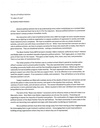
|
2016 apr 14
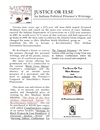
|
2014 jan 20
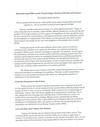
|
2014 jan 20
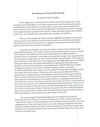
|
2014 jan 20
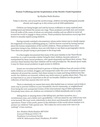
|
More... |

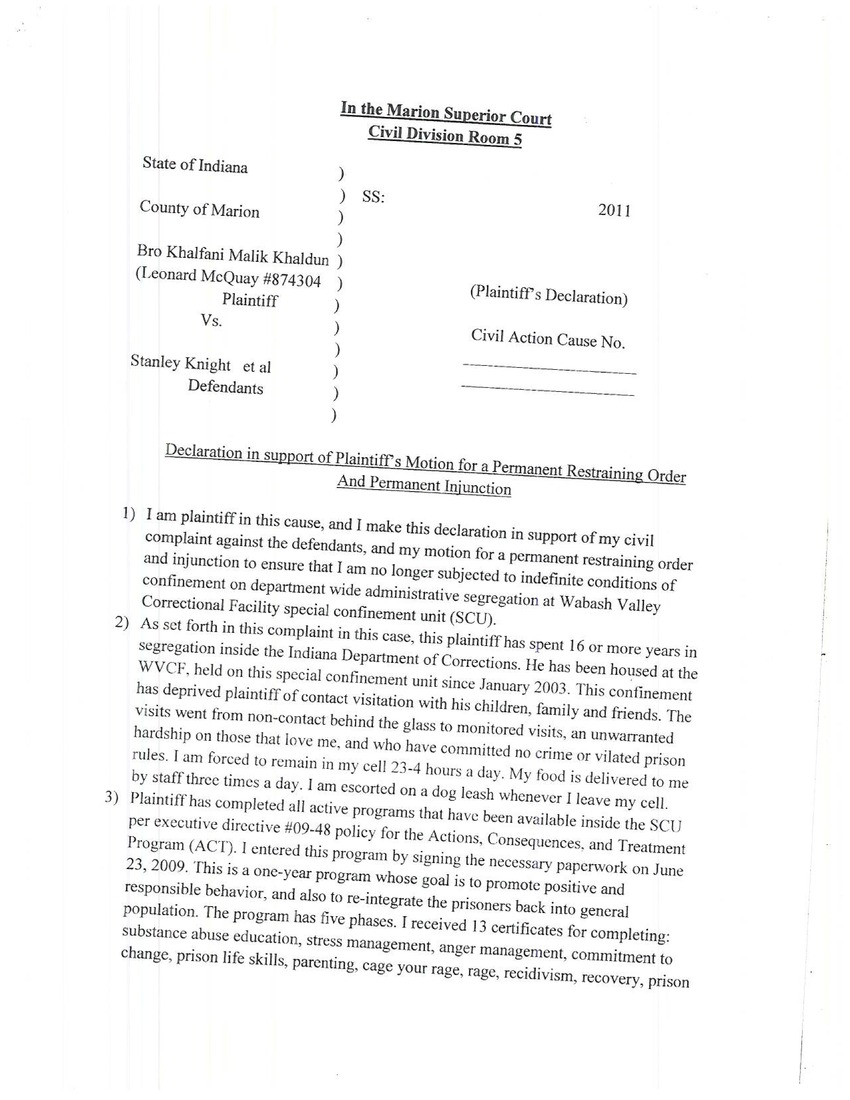
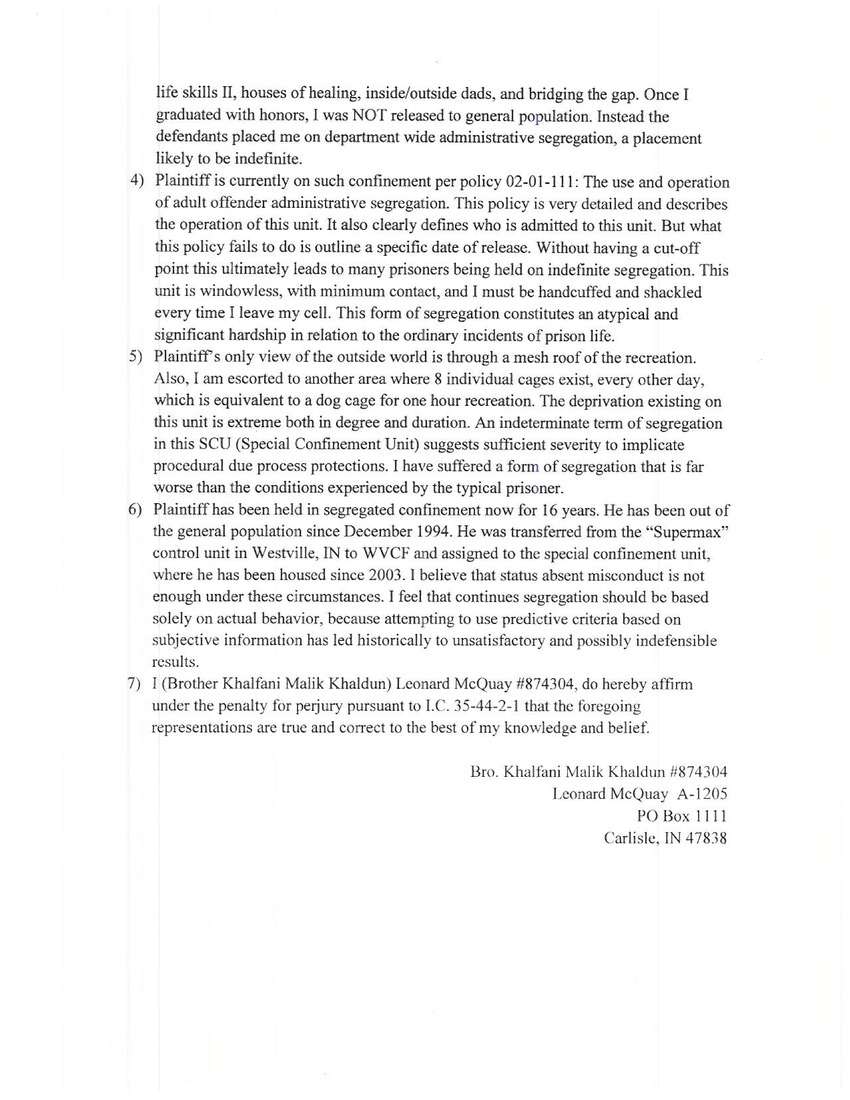
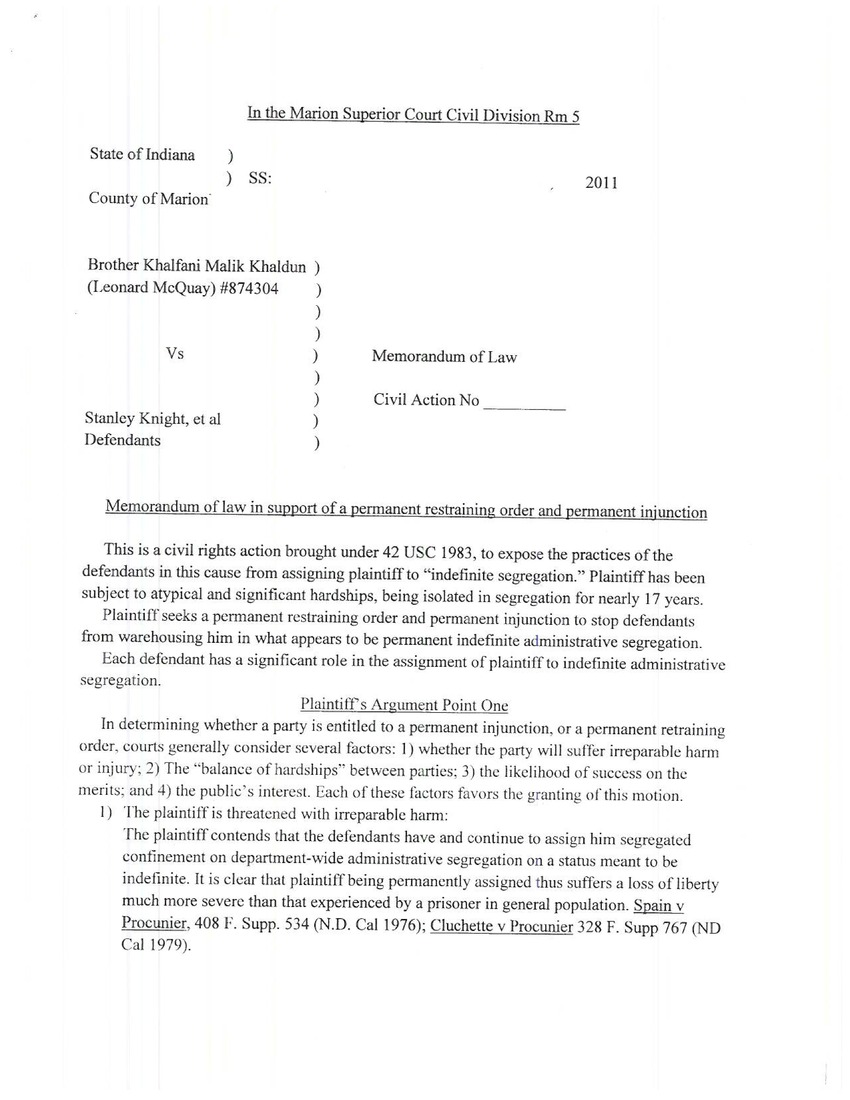
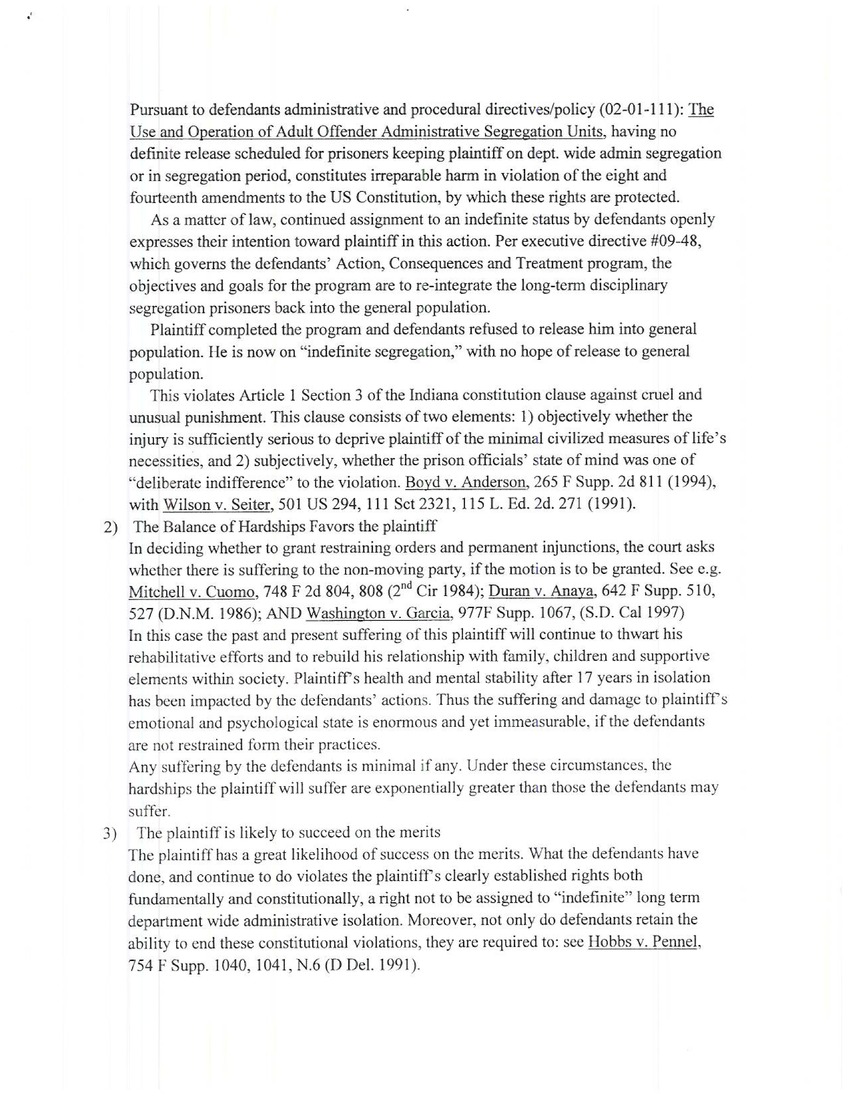
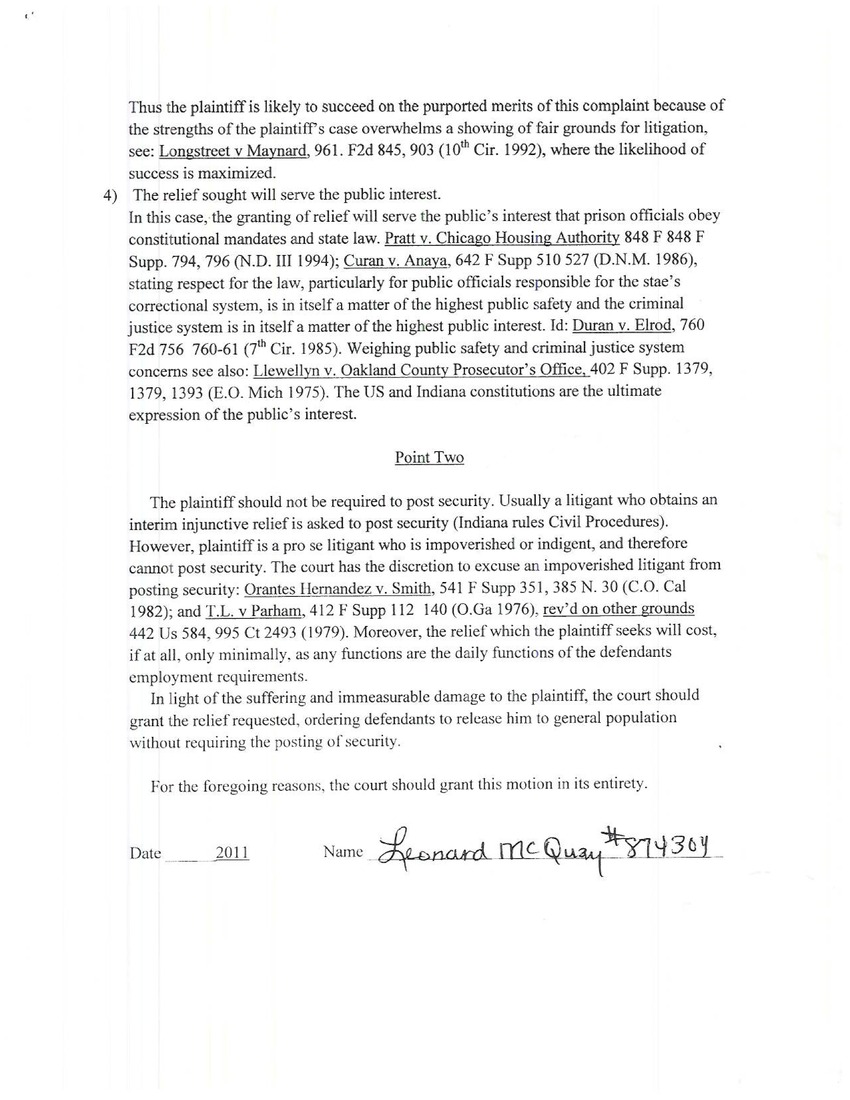

Replies